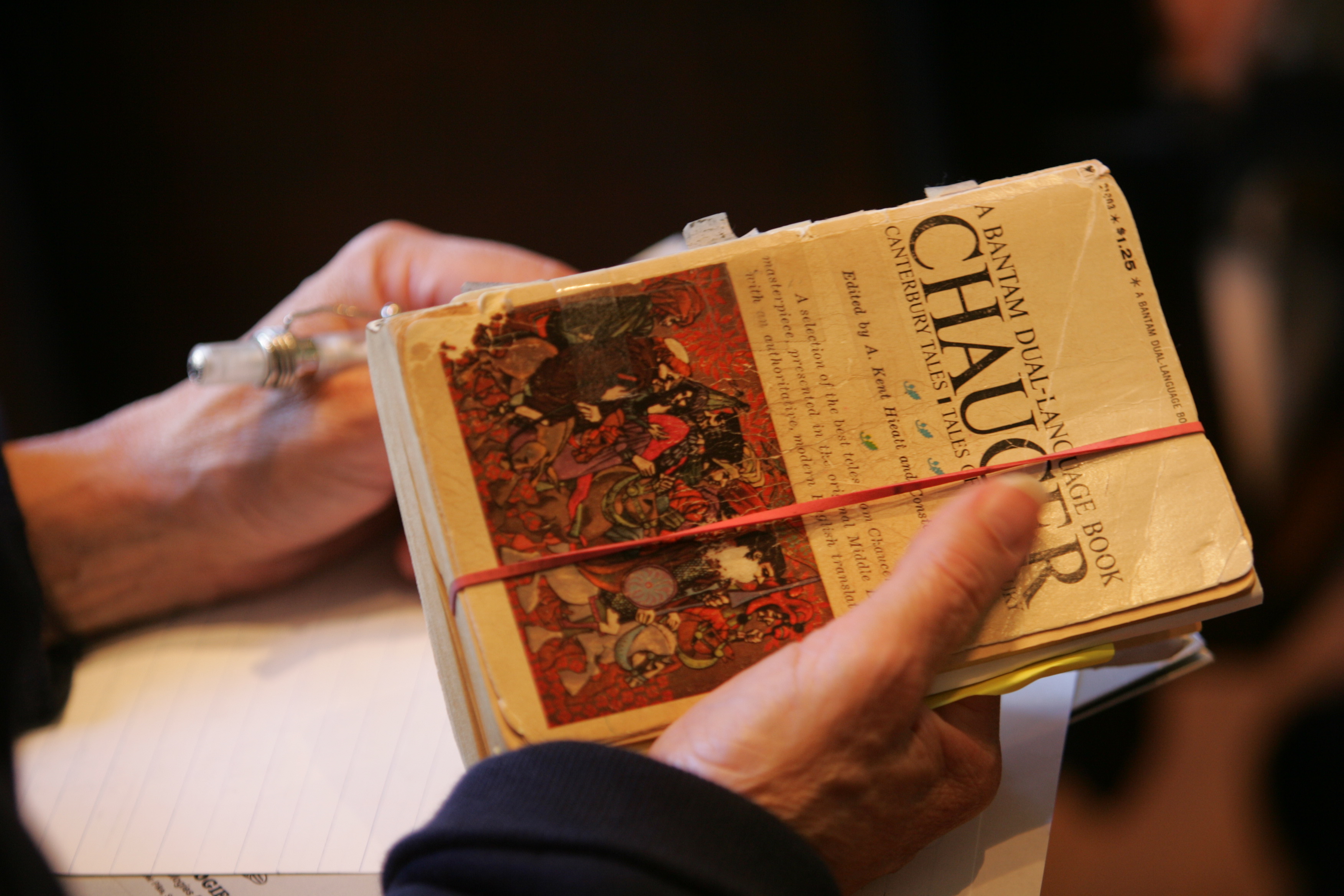Why do we say 'believe you me'?
It's a rather baffling word order...


Trust me. I know what I'm talking about. You can rely on it. Believe you me.
One of these sentences is not like the others. There are many ways to emphasize a point in English, but only "believe you me" flouts the rules so extravagantly. The phrase basically means "believe me." It's an imperative, and in an imperative, the "you" is understood; we don't typically say it. Sometimes it can be added for emphasis, as in "You! Go!" or "Go, you!" but when there's also an object, like the "me" in "believe me," we'd expect the "you" to come after it — "Believe me, you!" Why does "you" come before the object in "believe you me"?
This type of sentence construction has a history in English. The King James Bible contains examples like "be ye not proud" and "follow thou me." Chaucer used it ("trust thou me well"), as did Spenser ("call ye me the Salvage Knight"), and Shakespeare ("mark ye me").
The Week
Escape your echo chamber. Get the facts behind the news, plus analysis from multiple perspectives.

Sign up for The Week's Free Newsletters
From our morning news briefing to a weekly Good News Newsletter, get the best of The Week delivered directly to your inbox.
From our morning news briefing to a weekly Good News Newsletter, get the best of The Week delivered directly to your inbox.
These days, there are still a few phrases that make the implied imperative "you" explicit ("mind you," "mark you," "look ye," "hear ye") but only "believe you me" puts the "you" between the verb and its object. It looks like a frozen idiom. A phrase that got passed down from history and never bothered to change. End of story, right?
Apparently not. The strange thing about "believe you me" is that it seems to be a modern innovation. In a collection of 18th century English texts, it doesn't appear once. (Neither does "believe ye me" nor "believe thou me.") At the same time, "look ye" and "hear ye" show up all over the place.
For the 19th and 20th centuries, a Google Ngram search shows that "hear ye" and "look ye" declined in use over time:
As did as the biblical phrases "command ye me" and "follow thou me":
A free daily email with the biggest news stories of the day – and the best features from TheWeek.com
These charts fit the profiles of phrases that have stuck around, through frequent usage, from an earlier time with a different grammar. But what are we to make of the profile for "believe you me"? It only gets going in the 1920s. We didn't inherit it from an earlier English at all:
The phrase begins its rise with the publication of the 1919 book Believe You Me, a light, popular comic novel about rough-and-tumble characters who use non-standard words and slang like "ain't," "says I," and "holy smokes." The phrase didn't originate with the novel though. It's clear that it was in use before the novel was published. The author picks it up in order it to evoke the kind of common people who use it.
So the phrase was already on the streets in 1919, but how did it get there? A possible answer lies...in Ireland.
A study of Belfast English by Alison Henry discusses how older speakers of some dialects of English in Belfast not only put the imperative "you" after verbs ("go you away," "sit you down"), but also put it between the verb and an object ("put you it away," "phone you them up," "hand you me that parcel"). These speakers also use the phrase "believe you me." It was probably brought to America during the great 19th century wave of Irish immigration, where it took root as non-standard slang until its wider debut in a popular novel spread it to the mainstream. The few 19th century examples of the phrase that can be found, in The Dublin University Magazine and The Christian Examiner and Church of Ireland Magazine, support the Irish origin account.
Of course, the use of the phrase in Ireland might itself trace back to the older English pattern, but it could also come from the grammar of Irish Gaelic, where the word order is verb-subject-object. In any case, as far as America is concerned, "believe you me" doesn't reflect the long ago legacy of Chaucer and Spenser, but a more recent development, the slangy, boisterous, immigrant-led dialect of the streets that continues to enrich our language with every new wave.
Arika Okrent is editor-at-large at TheWeek.com and a frequent contributor to Mental Floss. She is the author of In the Land of Invented Languages, a history of the attempt to build a better language. She holds a doctorate in linguistics and a first-level certification in Klingon. Follow her on Twitter.
-
 Claude Code: the viral AI coding app making a splash in tech
Claude Code: the viral AI coding app making a splash in techThe Explainer Engineers and non-coders alike are helping the app go viral
-
 ‘Human trafficking isn’t something that happens “somewhere else”’
‘Human trafficking isn’t something that happens “somewhere else”’Instant Opinion Opinion, comment and editorials of the day
-
 What would a credit card rate cap mean for you?
What would a credit card rate cap mean for you?the explainer President Donald Trump has floated the possibility of a one-year rate cap
